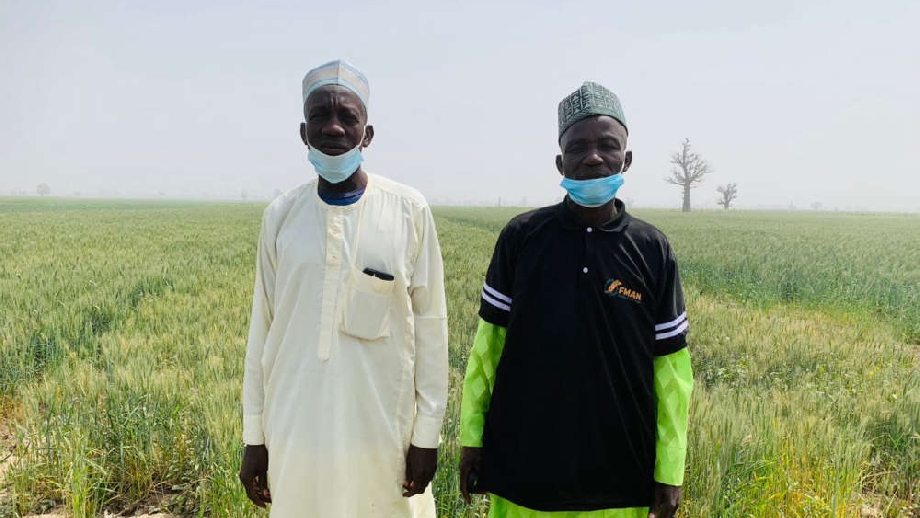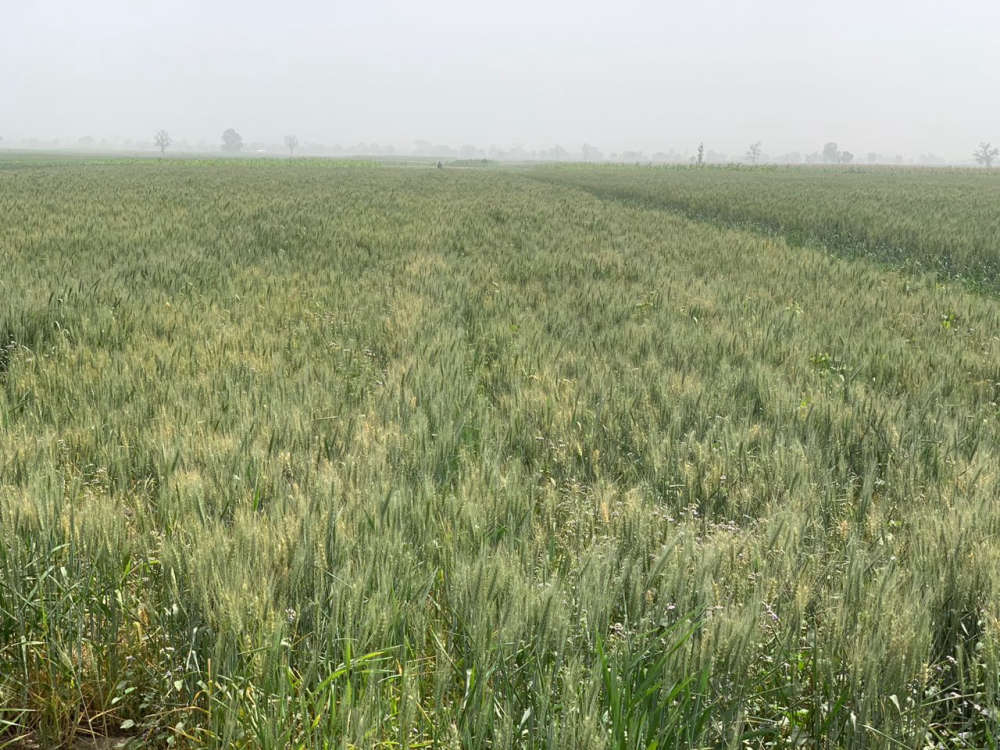
For years, Isiyaku Isa, a wheat farmer in Doma village in Kura Local Government area of Kano State battled low yield due to poor seeds.
He struggled to get 15 bags of wheat during harvest.
“We are farming but still experiencing challenges because if I use half hectares of land, I will end up getting less than 10 bags of wheat,” he told Nigeria Info.
“This year, we experienced a lot of challenges with the closure of the water. It affected wheat production.”
Like Isa, Saleh Ya’u Kuraza, another wheat farmer in Kuraza village in Kura Local Government Area averages 15 bags of wheat from his two-hectare farmland despite investing a disproportionately large amount of capital annually.
“Truly, we face a lot of challenges,” he lamented.
“In my one hectare of land, I get about 15 bags of wheat. And the way they price it in the market is nothing to write home about. We hope this will change soon.”
Nigeria Produces 420,000 Metric Tons of Wheat Annually
Nigeria produces 420,000 metric tons of wheat every year, according to records from the Federal Ministry of Agriculture and Rural Development.

Kano produces 30,000 of those metric tons, according to the state’s Wheat Farmers’ leadership.
The figures are insignificant when compared with Nigeria’s national demand of 5.7 million metric tons.
The over five million metric tons deficit costs the country N331.76 billion in annual wheat imports, making it Nigeria’s highest imported food item, according to the National Bureau of Statistics (NBS).
At the Dawanau International Grains Market, the wheat price has risen from N40,000 in the first quarter of 2023 to over N55,000 year-on-year.
Before Nigeria removed fuel subsidies and hiked petrol prices, traders at the market received no fewer than 10 truckloads of wheat daily. That has reduced to less than three.
“Before the hike in price, we sold a bag of wheat for 40,000, but now we sell it for 55,000 naira,” said Alhaji Yahaya Alhassan, a major wheat trader.
“Before now, we get 10 trucks daily; but now, we hardly get three trucks. Hopefully, if the new wheat comes out, the price will reduce again.”
The development and other related issues have contributed to the soaring price of bread, noodles, and biscuits across the country.
Currently, the price of bread has increased by 50 percent. Bread sold for N400 in December 2023 is now sold for N800, while the loaf sold for N1,200 now goes for N1,600.
Local Bakers Protest High Cost of Flour
On 2 February, local bread bakers, popularly known as Gurasa staged a peaceful protest in the ancient city of Kano, over a hike in prices of flour which they say is threatening to force them out of business.
Gurasa is made with flour, yeast, sugar, and water. The local staple is sold in almost every nook and cranny of Kano, providing a means of livelihood to thousands.
The bakers say a bag of flour has quadrupled to N41,000 from what it was last year.
The chairperson of the Gurasa makers’ association, Fatima Awwal wants the federal government to urgently come up with a policy to check the increasing cost.
“We are out here on the streets protesting to let the leaders know the economic hardship that we are facing at the moment,” she said.
“Many have lost their capital. It is such that only 25 percent of us now remain in the business as many others have closed down due to lack of capital.
“We used to buy a bag of floor at the rate of N16,000 in the past but now it sells for N43,000. This is absurd.
“What we produce is a common food for the poor and is now becoming unaffordable. Any time we go to buy four we get an increase of N1,500 to N2,000,” she lamented.
Kano Residents Protest High Cost of Living
Similarly, on 6 February, another set of protesters demonstrated against rising inflation.
Speaking on behalf of the protesters, Usman Bello, a resident of Rijiyan Lemo, said the harsh economic situation has caused untold hardship to the masses in the state.
“We masses voted for President Bola Tinubu. It will not be good of him not to listen to our complaints and address the pathetic economic situation we were facing.”
The protesters thronged Katsina Road and expressed their grievances in the Hausa language.
The Kano State treasurer of the Wheat Farmers Association of Nigeria, Alhaji Shu’iabu Isma’il said they were banking on the government to provide the support needed to make Nigeria a net exporter of wheat.
The Managing Director of Kano State Agricultural and Rural Development Authority KNARDA, Dr. Farouk Kurawa, assured the protesters that the government was not unmindful of their predicament.
Dr. Kurawa said the state government was partnering with the federal government to provide farm inputs to improve the farmers' productivity.


